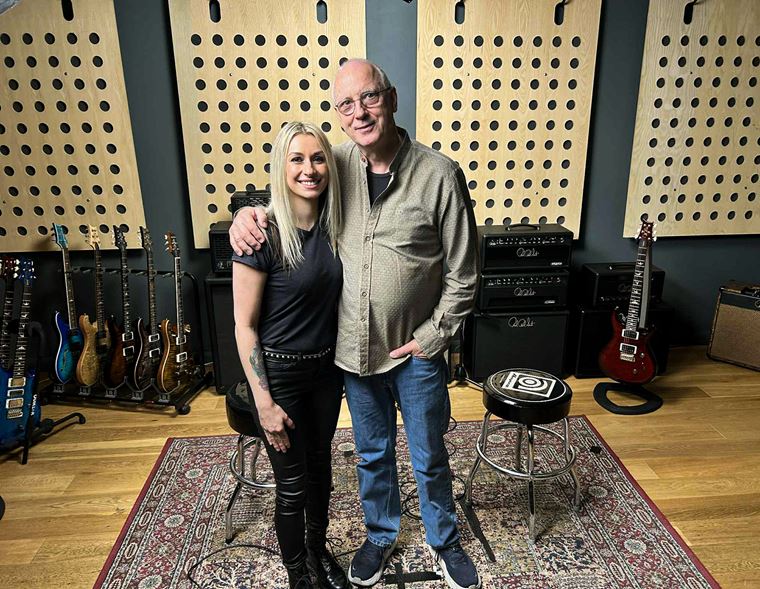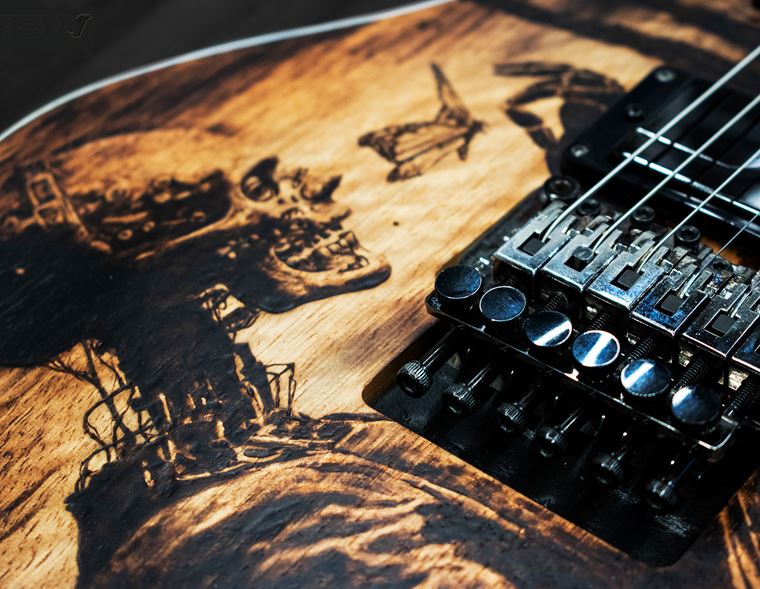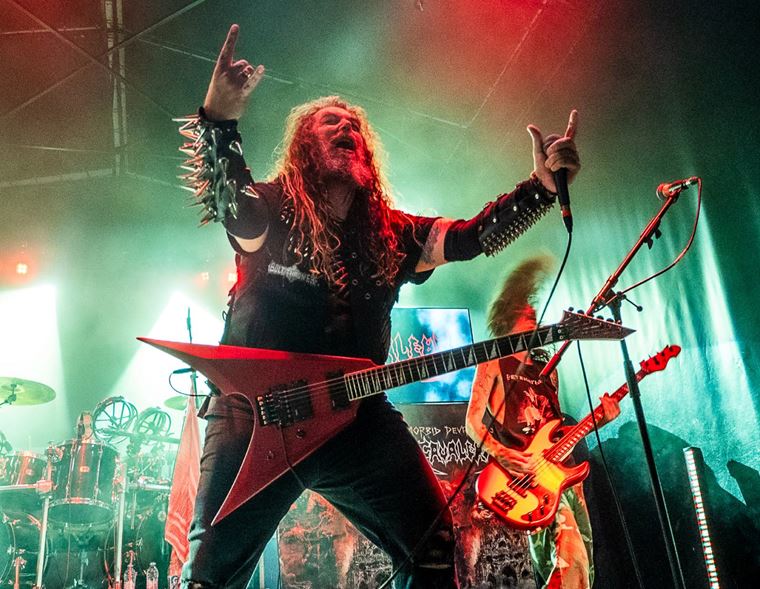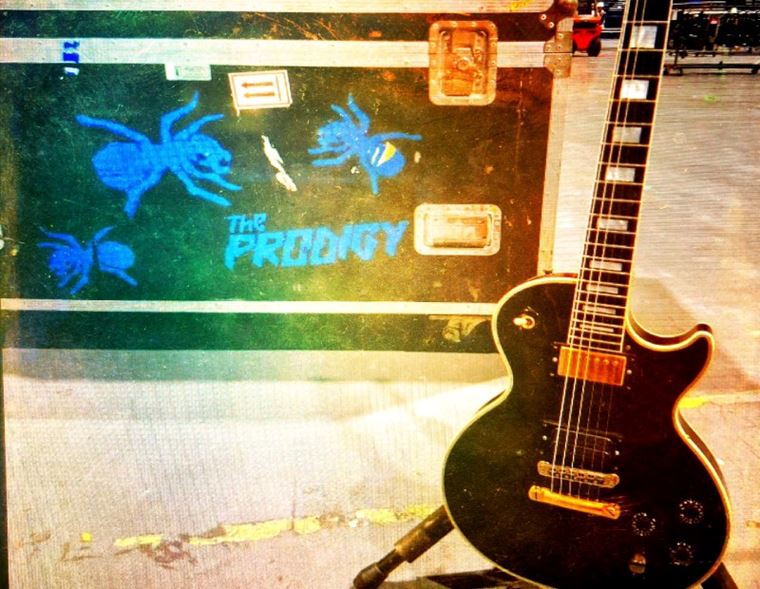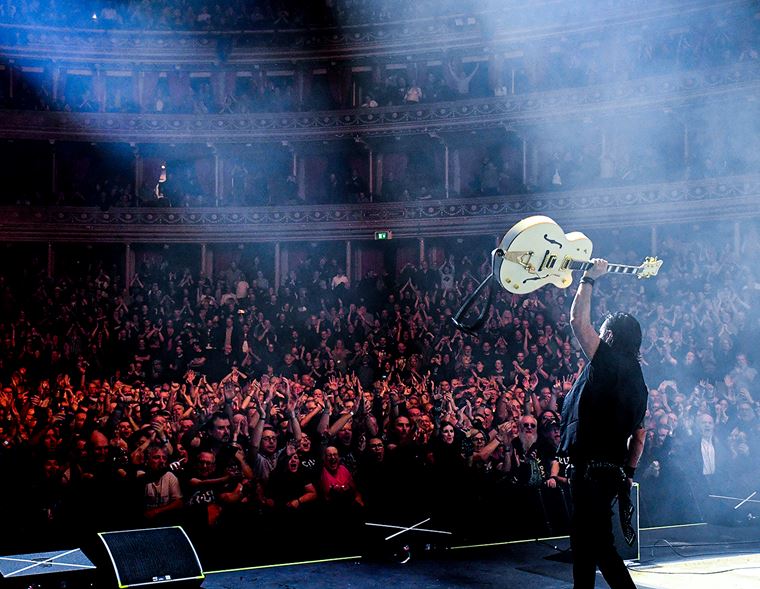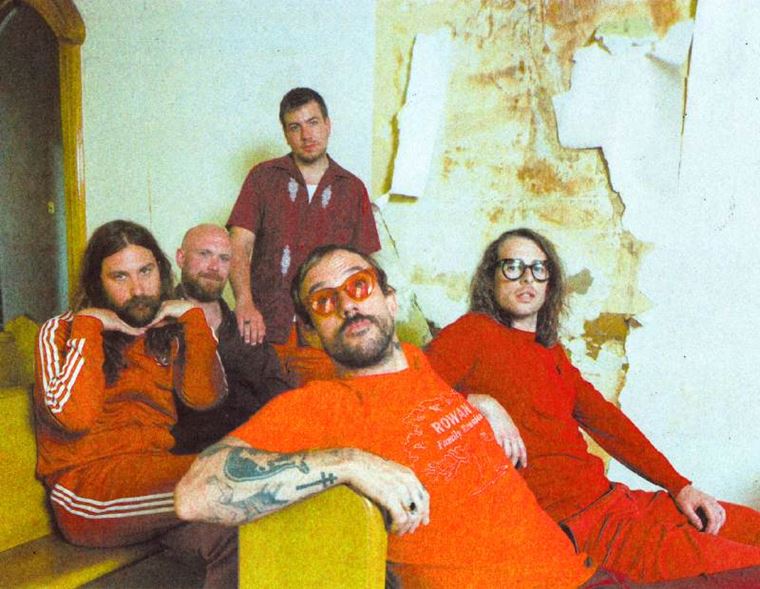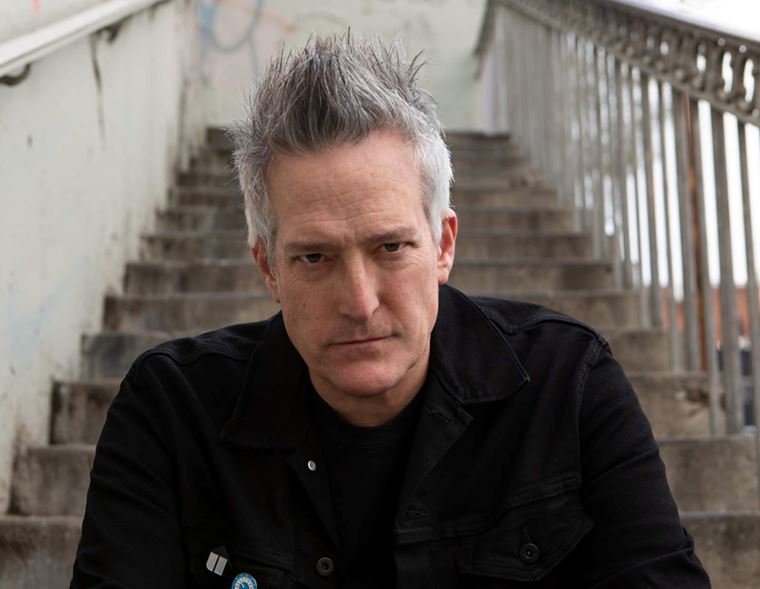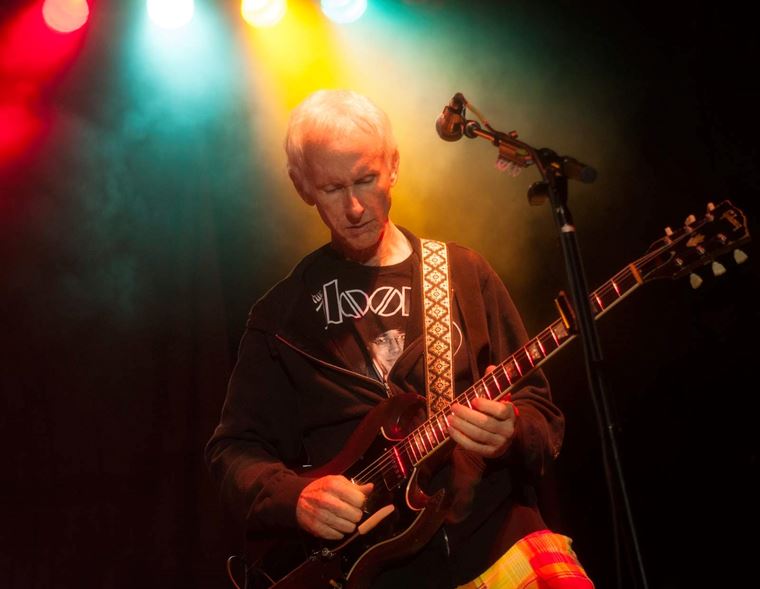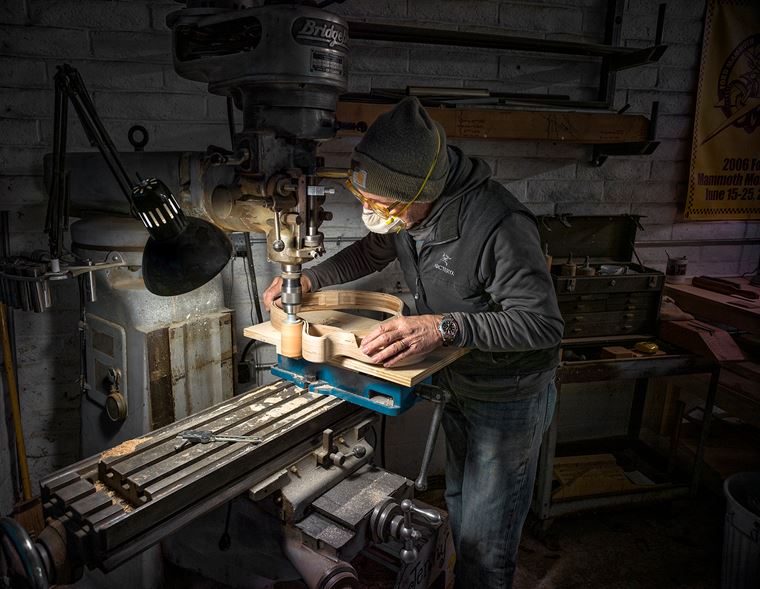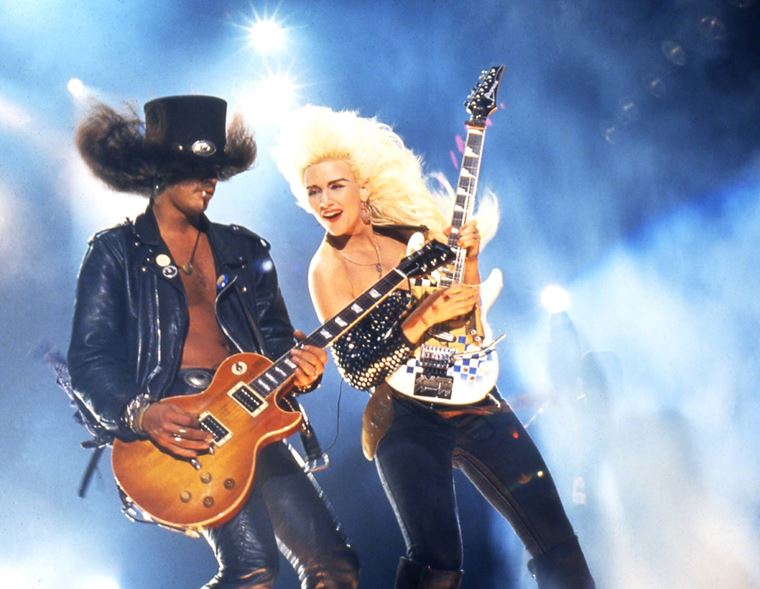Joanna Connor: Slide Guitar and Chicago Blues!
Do you love Blues guitar playing?
How about authentic Chicago Blues guitar playing, with masterful slide technique? From someone who has shared the stage with Buffy Guy, Hubert Sumlin AND Jimmy Page?
Sounds good, right?
Well, you need to know about Joanna Connor. She's the real deal, so much so that her brand new album, 4801 South Indiana Avenue, was produced by none other than Joe Bonamassa!
Blues pedigree does not come any higher or more true to the style. Joanna's singing and playing reminds you of why you love good rockin' Blues, and makes you want to grab a guitar and play along!
.jpg)
(Photo: Allison Morgan)
Joanna is an incredible slide guitar player, and when we recently caught up on Zoom to chat, I made sure to get as many tips on her killer technique as possible. Joanna was great company, and was happy to talk about her studio time with Joe, her jams with Jimmy and a whole lot more! From her Chicago home, we talked about the Blues scene over there, the benefits of Les Paul guitars and about just why the humble BOSS Blues Driver is such a handy thing to have! Blues fans are going to really love this, but there's a lot here for all guitarists, so take five and see what Joanna Connor has to say to you...
Guitarguitar: So, I have a bunch of guitar-related questions for you here!
Joanna Connor: Okay, let’s go!
GG: Cool! So, this new record: am I right in saying that this is your 14th album?
JC: Yeah, it might even be more! (laughs)
GG: So it’s called 4801 South Indiana Avenue. It’s quite a specific title and it has quite a special meaning for Blues fans, doesn’t it?
JC: Yes, it was the address for the infamous Theresa’s Lounge on the South Side of Chicago where, gosh, the greats used to play. I actually got to play there 3 times, the year before it closed. Yeah, Theresa Needham owned that bar, and you know, Howlin’ Wolf, Muddy Waters, Buddy Guy, Junior Wells and everyone played there.
"He said ‘Joanna, come here, I want you to meet someone’, and it was Jimmy Page. I couldn’t believe it. I don’t even know what I said to him. My friend was like, ‘He wants to jam with you!’ Jimmy was just quiet and sweet and very, very friendly, very complimentary."
GG: Is it some other venue now, or is it just totally gone?
JC: It was, like, the basement of an apartment building, so I think it’s just gone, from what I could tell.
GG: Okay. So, this record – from the specially chosen cover songs to the title – it’s all about keeping the heritage of places like that alive, right? And of Blues in general?
JC: Yeah. We wanted to do a Blues records, like a classic Chicago Blues record, but we didn’t want it to sound sterile, you know, ‘Oh! Let’s not Rock it too much!’ We still played it the way we felt it.
GG: I heard that quite a lot of the rhythm tracks at least are live takes? Or first takes? Am I right in saying that?
JC: Yes, both! I mean, everything guitar-wise I did live, except for the last tune, It’s My Time, when me and Joe went and laid some slide guitar. But that was it, everything else was live. The only thing I overdubbed was vocals and I don’t think we did anything more than 3 takes, at the most. A lot were first takes.
GG: Brilliant! Do you reckon there’s a... I’m going to use the word ‘honesty’ and I don’t know if that’s the right term, but do you think there’s something more honest about that first take than if you have infinite chances?
JC: I think so! I think honesty is a good word. Even in the past, when I did more ‘produced’ stuff, paying more attention to the production, doing things over and over, a lot of times the first one or two takes are the ones, you know? I think if you do something over and over again, not to say this always happens, but you can tend to overthink it, and then it loses that freshness, you know? No matter what style of music.
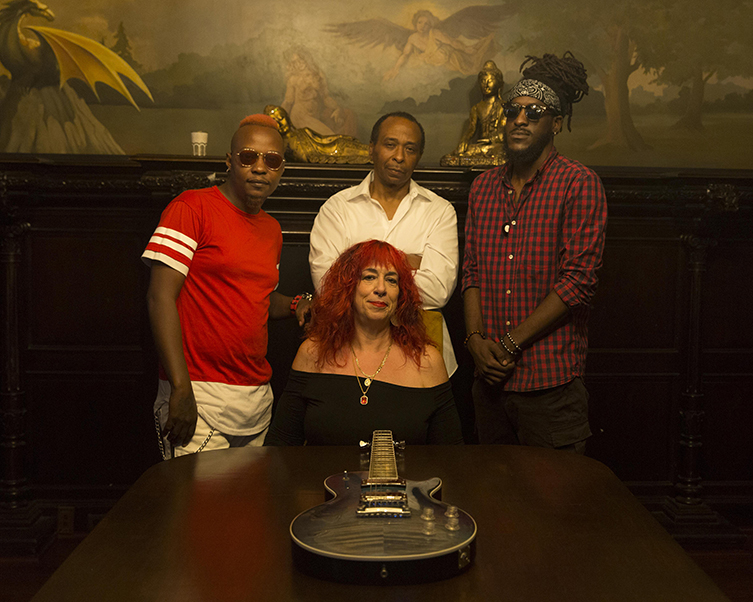
(Photo: Tyler McDaniel)
GG: Yeah, yeah, most definitely. Now, you mentioned Joe, and of course, that’s one of the big stories of this record! That’s not just any Joe, that’s Joe Bonamassa! How did you get involved with Joe?
JC: The Joe! (laughs) Yeah, I mean, I knew career-wise that would be fantastic, but really artistically, I totally respected his musicianship. I mean, he’s an amazing guitar player, a good singer and a very hard worker. I didn’t realise what a wonderful, intuitive artist he is, you know? As a producer and as an arranger, he’s just really fine at what he’s doing. It was a pure pleasure to work with him.
GG: Excellent! So, presumably there will be an engineer who does all the mic’ing and so on, so was Joe’s job more about, as you mentioned, arranging these versions of these songs into how you guys would perform them?
JC: No, Joe did everything! He was involved with the technical aspect of it, the mic’ing, certain sounds we got with the voice...he was hands on for the whole process.
GG: Ah, cool! I didn’t realise that.
"I like a bigger, wide, full sound. I think the Les Paul brings that too, you know? I think you can get a lot of sound out of it. It’s definitely heavy, but the sustain is incredible, of course, which I love."
JC: He impressed me with all of that technical knowledge, although I shouldn’t have been surprised. I was like, ‘how did you learn all this?’ in the studio and he was like, ‘I’ve asked a lot of questions all these years’, so yeah! (laughs)
GG: Haha, so in that case, with the tracking and everything, was he there the whole time or did he come and go?
JC: The whole time. I mean, he played on every track, on the rhythm parts. He was the only one in the control room, not in the (live) room. He was there for every aspect of it, completely.
GG: Whilst we’re on the subject of well-known people, you’ve shared the stage with some number of greats! Whilst doing my research, I read that you’ve jammed with Hubert Sumlin, Buddy Guy, which is amazing, but I’ve also heard that you’ve jammed with Jimmy Page! Is that right?
JC: Yes I did! (laughs) In 1985, he was on tour with The Firm, and I was in another band called Dion Payton and the 43rd Street Blues Band. We had a house gig at a famous Blues club that was still there, we’ll see what happens. A lot of, you know, people like Jimmy Page, Mick Jagger, Aretha Franklin, they would come through there.
One night, the bandleader Dion – because we played till 4 in the morning – was like, ‘Joanna, go up and jam, there’s some English guy (laughs), go jam with him!’ I was, ‘Okaaaay, whatever!’ He was gonna use my Les Paul. And then I walk out to go on the stage, and this guy that I knew, he was with Jimmy Page and was from Atlantic Records. He said ‘Joanna, come here, I want you to meet someone’, and it was Jimmy Page. I couldn’t believe it. I don’t even know what I said to him. My friend was like, ‘He wants to jam with you!’ Jimmy was just quiet and sweet and very, very friendly, very complimentary. He did, like, 5 songs.
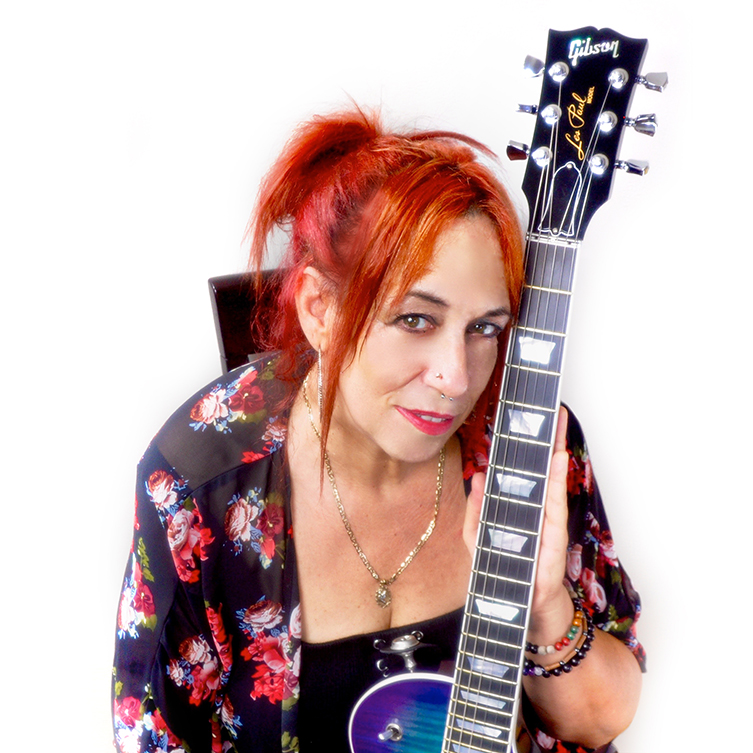
(Photo: Cory Anderson)
GG: Wow!
JC: Yeah, I couldn’t believe that was happening, you know?
GG: 5 songs? So were you guys trading solos and so on?
JC: Mmm-hmmm! Yeah!
GG: Hahaha, that’s alright, isn’t it?
JC: Incredible, yeah! And, dude, I was like, 23 years old! He was one of my idols. And then he was just this little, shorter guy, because you imagine, you know, Rock Gods! I’m 5ft 9 and he was shorter than me. And I hugged him, I got to hug Jimmy Page (laughs) We stood next to each other, and a couple of times he would lean over and say, ‘what key are we in?’ I’d say, ‘A minor’ and he’s like, ‘okay!’ (laughs) He waw just smiling and it was incredible.
GG: Wow, what an experience! I’m surprised that he’s short! As you say, you watch the old footage and he looks about 7ft 2!
JC: Right?! He does! Actually, the most funny was Chris Squire from Yes. He actually came and sat in – this is years and years ago – and he’s really, really tall, like a basketball player. My bass player at the time was this little guy with a really small bass, so when Chris Squire put it on, it looked like it was a ukulele!
GG: Hahaha, that’s good! So, Jimmy Page borrowed your Les Paul, and every picture and video I see of you performing has a Les Paul in it. They must be your favourites, right?
JC: Yeah. I started out on a Strat...actually, my first electric guitar was a Telecaster, and it had an incredibly thick baseball bat neck, so it didn’t really feel good to me. Then I went to a show where there was a lot of different guitar players. All of the people playing Gibsons just had the tone, so that made me switch over. And I like Strats, they have their wonderful qualities, but I dunno, the Les Paul, to me, just has that...well, it’s a big block of wood! (laughs)
GG: Totally! And they have such a specific sound. Strats are skinny, Telecasters are a bit less skinny, and Les Pauls are just big. Is that part of the deal for you? The one guitar that makes a lot of noise?
JC: Yeah, I guess it’s that kinda idea, but it’s not about loudness, it’s about fullness. I like a bigger, wide, full sound. I think the Les Paul brings that too, you know? And there’s a lot of different qualities: the bridge pickup, the neck pickup, I think you can get a lot of sound out of it. It’s definitely heavy, but the sustain is incredible, of course, which I love.
GG: Cool! And I’m not sure if I identified them correctly, but is it a Les Paul Classic and one of the new Les Paul Modern’s that you’ve got?
JC: Yeah, that’s the two that I have, yeah.
GG: Is one the main guitar and the other a backup?
JC: Well, the Les Paul Classic 1960 reissue I have, I’ve played it from like 1990 until 2019, almost exclusively. That guitar has been through the war! Then, when I got the new one, I’ve been playing that exclusively. The neck’s a little different, though. The Classic 60, I think it has one of the thinnest necks which I love, and it’s really heavy, like really heavy! One of the reasons I chose the Modern is, I was reading the specs and it’s made to be a little bit lighter, so it was like, ‘yeah, maybe I should give this a go’. The neck’s a little bit flatter, a little bit wider, but I love that guitar. And it’s really pretty!
My other guitar wasn’t so beautiful, but it was a part of me, I’d played it for so long! And now I think it’s upset with me! (laughs) It’s in my new video but I didn’t really use it. I didn’t take it to Nashville. Plus, I’m always worried about that guitar. The neck has broken three times, up the top near the headstock, that classic place!
GG: I know it well, unfortunately.
JC: That’s where Les Pauls seem to fall apart! It’s been glued together three times!
GG: That’s mad! They normally say after the first time, that the glue makes it all stronger than ever, but clearly it’s not! (laughs)
JC: Not that time! The last time was 7 years ago, so that held up the best.
GG: Cool. Now, you’re an excellent slide player, just really, really good. One thing I’m always interested in with a guitarist who plays both normally and slide on the same instrument is, do you have a special setup for it? I keep trying and my slide always knocks into the frets and sounds horrible! Do you do anything with the setup of your Les Pauls to make the slide playing easier?
JC: Nope! Hahaha! I tell people that when I started playing in Chicago, I wasn’t the focus of the band. I was the rhythm guitar player that got to solo 30% of the time, let’s say, so I’ve backed up a lot of people. We were a house band at two different bars and every night there’d be special guests, and it wasn’t like, ‘Oh, hold on till I get my other guitar so I can play slide!’, you know? A lot of times, there’s not even a setlist! Somebody’ll yell, ‘Ok, Sweet Home Chicago, Key of E!’, or whatever. I had to be ready, so I adjusted my playing style to be able to use a traditionally set up guitar. I wasn’t gonna kill myself trying to solo on a guitar with strings up off the neck!
I teach people now, that’s what I’ve been doing in the pandemic so I’m very focused on how you can play slide on a, you know, regular guitar.
.jpg)
(Photo: Allison Morgan)
GG: Yeah.
JC: It is possible, though!
GG: So, being that you’ve just told me you teach people, it would be very wrong of my not to take advantage of this opportunity! Can you pass on any tips for playing slide on, say, a standard guitar, gauge 10 strings, very light action? What finger should they be using?
JC: Well, you know, there’s so many varying opinions about it and I think slide is one of those things where everyone has their own style. I play on my pinky, that’s how I was shown years ago, but also, it leaves everything else free to do whatever (holds up her other fingers of left hand). So, I play on my pinky, and I use my middle finger, so that when I hold my hand, it’s kinda like my middle finger’s below everything. That dampens everything.
Then, I always tell people, you have to be so – I always say it’s like a feather – you have no pressure. I mean, you never do with slide anyway, but extremely, extremely loose and light, with no tension at all. The only time I’ll feel tension is when I’m doing vibrato, and I’ll feel it up in my bicep or shoulder, but everything from my elbow down is like, I say it’s like rubber.
"My bass player at the time was this little guy with a really small bass, so when Chris Squire put it on, it looked like it was a ukulele!"
GG: Wow, that’s a great tip!
JC: Yeah, and then the thumb on the back of the neck, absolutely no pressure. It’s just there because it has to be there.
GG: I see.
JC: I always say with slide, unless you’re using an open tuning where you can use the whole slide for chords or whatever, I always aim for the top half inch of the slide, like all the time in the same spot. I always tell people, everything about the guitar is small anyway but with slide, it’s even smaller. It’s increments with slide, because you know, you have to be so precise, being right over the fret. With your vibrato, you gotta not go too far to the left or too far to the right, even if you’re being extremely relaxed with the left hand and arm. And that’s kind of it, really! I mean, if you can do all that, you can get it done!
GG: So, whichever string you want to pay, you aim the slide so that the top part is making contact, not the entire slide felt flush with the strings.
JC: Yes. All the time.
GG: That’s a revelation to me!
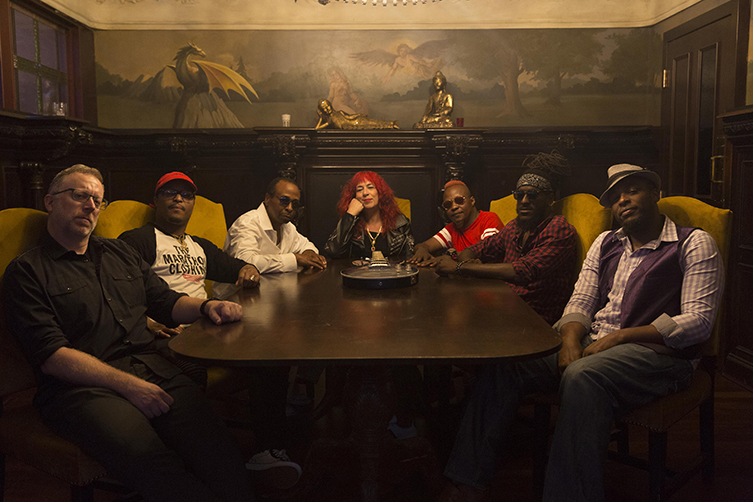
(Photo: Tyler McDaniel)
JC: Yeah, that’s how you do it! Exactly! And then you’re just dropping the wrist and pivoting with your wrist. You use the tip of the slide because slide is about control. Control at all times. If you don’t, it’s a giant mess, especially if you use standard tuning. I play 10-gauge strings, I have my action set up light, I have 12s on my acoustic, I use the lightest strings possible! So yeah, that’s how I do it!
GG: Brilliant! Thank you for sharing so much! I think you’ve answered about five of my questions there, haha! Now, damping: do you do a lot of damping with the right hand?
JC: No, I just go for it. Sometimes, with some very specific, heavy damping, I will, but otherwise I do all of my damping with the middle finger of the left hand. It’s always below. You’re gonna feel it from the first joint to the tip of your finger: you’re gonna feel it all the time, but it’s very light, you still have no pressure at all.
GG: That’s so good! And the other thing I wanted to ask in relation to that is: what’s your favourite type of pick?
JC: I use a Jim Dunlop Tortex .60mm.
GG: That’s quite light!
"You use the tip of the slide because slide is about control. Control at all times. If you don’t, it’s a giant mess."
JC: Yeah, I guess because I played so much rhythm guitar, I like it for the rhythm guitar aspect of it. It’s funny: I asked Joe, because he uses a very heavy, small Jazz pick, and it’s the complete opposite of me. As I say, it’s because I love playing rhythm guitar – not that he doesn’t! – but I always liked the flexible, bigger pick.
GG: Awesome! And in terms of what’s happening after your guitar in the chain, do you have any pedals?
JC: No, Joe made me go straight into the amp! (laughs) He had an old Fender ’55 Deluxe and he said, ‘Nope! No pedals!’ I like an overdrive, and I’ve used various overdrives over the years. I use a Chorus pedal, mainly for my rhythm, and I use a delay. I don’t use reverb, I like delay, just enough for a bigger sound. Not something obnoxious, like you’re playing in some giant hall, and not a slapback like a 1950s Elvis record, but kind of in the middle. That’s what I do usually. With rhythm, I want a big, thick sound, and a clean amp. Then I can just step on the pedal for the dirt.
GG: Okay! And so for the overdrives, are we talking like Tubescreamer-type things or something heavier?
JC: I go for a little bit heavier than a Tubescreamer. I like to have it so that if I want, I can play something really nasty! I used to have a Marshall Bluesbreaker pedal, I have a Blues Driver, I used to use a Turbo Overdrive by BOSS, just different ones throughout the years. It has to have enough real heavy grit.
GG: The Blues Driver, I think, is one of the secret weapons of guitar playing pedalboards.
JC: I think so to!
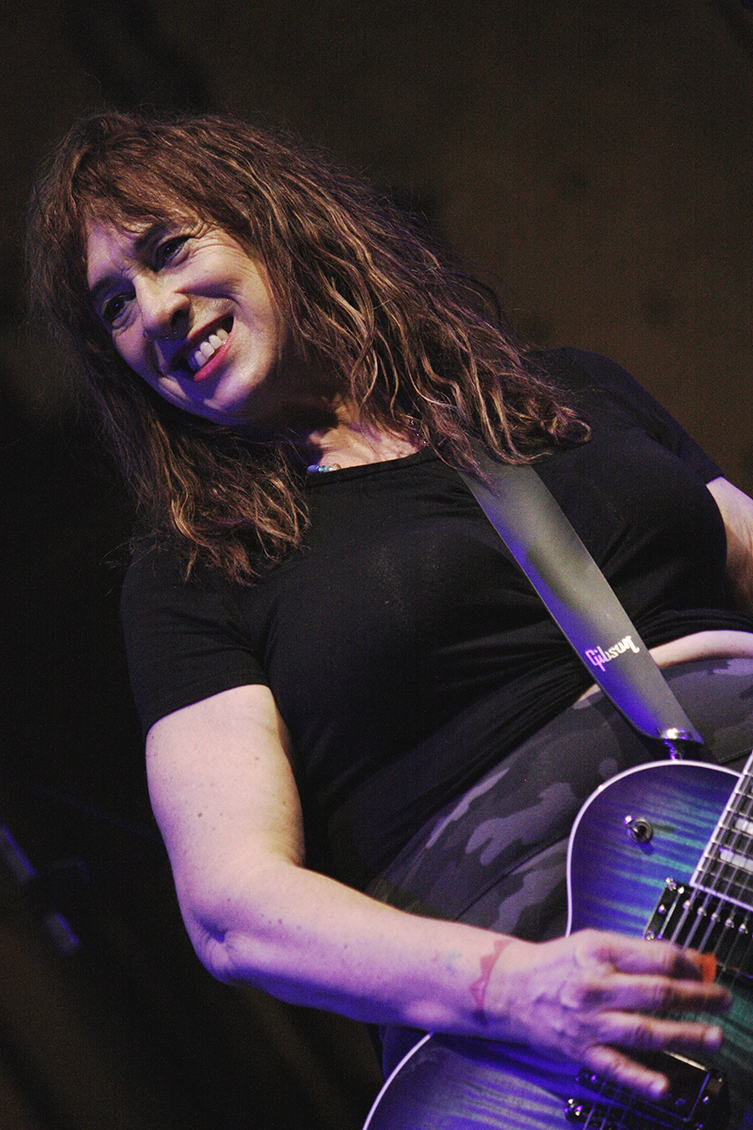
(Photo: Ezzio Sacchi)
GG: It’s got so much range; you can have lots of dynamic.
JC: I’m glad you agree with me! I was trying different pedals and some of these were really expensive ones. I was like, ‘this little baby here’! Like you said, it can be really, really overdriven or you can have it subtle, like a Tubescreamer. And it’s not expensive.
GG: It’s not, which means it’s replaceable on tour, which is brilliant.
JC: Yup!
GG: You don’t have to go and find another Klon Centaur somewhere, haha!
JC: Oh my god! We have one of those in the studio with Joe. We didn’t end up using it, but I found out how much it cost and was like, ‘are you kidding me?’
GG: Was it a bronze coloured one or a silver one?
JC: It was silver, I think.
GG: Ah, that’s one of the really early ones! That’s super-posh!
JC: Well, that’s Joe Bonamassa! (laughs)
GG: Haha, you could sell one of those and buy a car!
GG: Probably!
GG: Haha! I think we’ve nearly rattled through all of my questions! That was so helpful of you to share all those slide techniques! So, I guess one thing that’s worth asking about, since we’re over here in the UK: pandemic aside, how is the Chicago Blues scene, generally? Is it quite healthy?
JC: Yes, it was! Any night of the week, you could go to at least 4 or 5 paces, even on a Monday night and see really good music. And then in the suburbs too, we have Buddy Guy’s Legends, House of Blues, Blues Chicago, the Kingston Mines, Blues, Rosa’s, um, that’s just some of them. And then there were other places, too. The Wonder Bar...I mean, there was just...all that, every night of the week. Now? I don’t know. The only one that’s been active has been Rosa’s and that’s where we filmed the video. He’s (the owner of Rosa’s) been doing a lot of livestreaming and he invested in a good camera & sound, but no one else is open.
GG: Wow. So vibrant, and now it’s a case of ‘wait and see’.
JC: Yeah, unfortunately. I mean, the Kingston Mines, where I’d play Thursday, Friday and Saturday, where in the 80s I played with Jimmy Page, it’s been open 50 years and it looks like it might not open. It’s so sad. And it had two stages, so every night of the week there were 2 bands, so that’s 14 bands a week. It’s sad.
GG: It’s lifeblood, it’s livelihood. Such a shame. Well, your record, if I’m not mistaken, is out tomorrow, isn’t it?
JC: Yeah, it is out tomorrow!
GG: Are you excited about it?
JC: I am! It’s funny, I was talking to my son and he said, ‘Friday’s a big day, Mom!’ I’m like, ‘What’s Friday?’ ‘Your record!’ ‘Oh yeah, that’s right!’ (laughs) But yeah, I am excited. I did an interview with Joe; it was on last night and it was really good. I was watching and it was fun, so it got me in a good mood. I’m really, really grateful to him, and his whole team of people are really excellent, on top of everything. Hopefully it looks like we’ll make another record together, who knows when, but...
GG: Okay, that’s great news.
JC: It was a joy, and I really like the record. I don’t say that about all the records I’ve made! Some records, I’ve been like ‘Ah yeah, I liked this, I liked that’, but this one: it’s solid, you know?
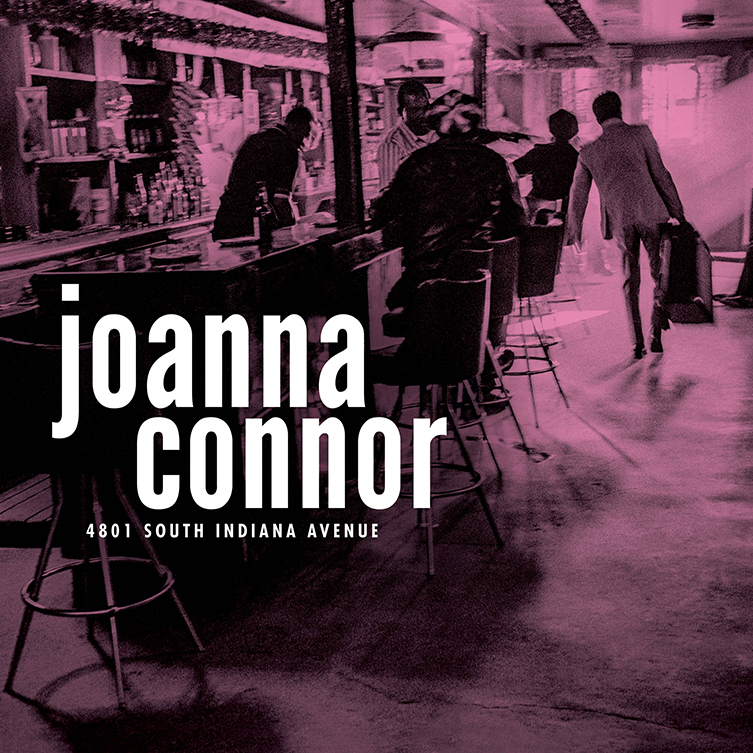
GG: Brilliant. Well, how can you lose, when you’ve created something you feel that way about! So, my last question is: presumably touring will happen somewhere down the line, but in the meantime, what’s next for you?
JC: Teaching, that’s about it! I’ve been writing an article too, so that’s been an interesting avenue for me. That’s been good, but yeah: I’ll have a show in March, which will be the first one in 5 months, and then I might be in the Dallas guitar show in April, so we’ll see. At first when this all happened, I was so upset. Sad, angry, everything. Now, I guess we’re all just like, go with the flow. I know eventually things will come back, but it is gonna be different. Some clubs might close, some might open, but I think people will be so hungry for music, so I think it’ll be a lotta fun once it starts again. We’ll be coming to the UK, including your lovely country, in 2022!
GG: Good! I’ll catch up with you then!
Here's hoping! Joanna's album, 4801 South Indiana Avenue, is out now wherever you get your music. We'd like to thank Joanna for giving up so many great bits of advice, and also to Peter Noble for putting us in touch.
Thanks for reading, and don't forget to head over to our guitarguitar Interviews section of the site for many more interviews like this, including Joe Bonamassa and Steve Vai or check out our guitar slides!
Until next time.


